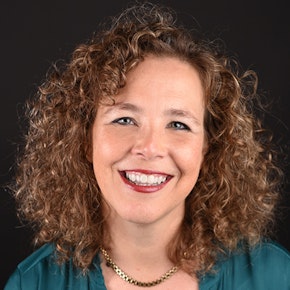Sunday, March 27, 2022
Monday, March 21, 2022
Fact checking in the news and opinion pages
Word by Word, Line by Line
How to fact-check The Atlantic
|
In a world where misinformation thrives and basic editorial standards are often jettisoned as unnecessary expenses, fact-checkers can feel like an endangered species. But The Atlantic is dedicated to accuracy and truth—and therefore to rigorous fact-checking. Our pieces seek to be thought-provoking and interesting—but to be truly insightful, they must be right.
Checkers verify every fact published in our magazine, from specific details and quotes to larger generalities. The process can take anywhere from a few hours (for a very short article) to weeks or even months (for a complex, legally-fraught one).
Let me explain how I checked this short section of “What ISIS Really Wants,” Graeme Wood’s March 2015 feature. In the piece, Graeme explores the ideology of the Islamic State, arguing that the group is rooted in carefully-considered religious beliefs.
How do I go about fact-checking a piece like that? Here are the basic steps.

- Get familiar with the material. I read the piece a few times and educate myself on the topic. Then the author either annotates the piece with sources in footnotes or simply walks me through it. This gives me a sense of how the piece was put together: What or who are the sources? Who might be difficult or sensitive to deal with? Then I ask the most important question: What is the author most worried about?
- Break down the piece with a red pencil. I format the piece with wide margins and underline all the facts that have to be checked in red pencil. Legal sections are noted in red marker with lots of circled stars to indicate a need for triple-checking. I’ll highlight details to discuss with the author, and list possible solutions on a sticky note. After Graeme and I agreed on a change, I circled it with a red pen. Anything that I have confirmed gets a check mark through it—and, oh, the lovely satisfaction of making a check mark!
- Plan interviews with the author’s sources. For a primary source, this can mean hours of conversations or pages of emailed questions. For a difficult or sensitive source, I create a script of what I need to find out and confirm; these conversations are too important to leave anything to chance. The next-to-last thing that a checker wants is to endanger a piece’s prospects for publication—but the last thing a checker wants is to allow publication of a piece that cannot withstand factual scrutiny.
- Start talking. One of Graeme’s main sources for this article was a young Australian named Musa Cerantonio known at the time for guiding foreigners to join the Islamic State. While Graeme had had hours of interviews during which to build remarkable trust with Cerantonio, I had to do the same in much shorter order. Graeme and I initially feared that Cerantonio might be reluctant to speak to a Western woman about anything, never mind spend hours confirming his philosophical beliefs. But when we did finally speak, perhaps because of his confidence in Graeme, Cerantonio was surprisingly cordial and quite candid.
- Review quotes with the author’s sources. If someone objects to a quote, that doesn’t mean we aren’t going to publish. We just need to make sure that the quote is accurate, that it is attributed to the appropriate source, and that the context is fair. In the second paragraph of his article, Graeme notes that, according to Cerantonio’s friends, ISIS leaders have an obligation to declare the caliphate. When I asked Cerantonio about this, he was coy, clarifying that it wasn’t “a friend” but someone he communicated with in chat rooms. Graeme immediately realized who he meant and we changed the line to say “a Western convert within the group’s ranks who Cerantonio had described as ‘something of a leader.’”
- Call on a few experts. To confirm whether or not ISIS supporters considered it “sinful” for their leaders to delay the establishment of an Islamic caliphate, I spoke to two others quoted elsewhere in the piece: Anjem Choudary, a U.K. preacher and ISIS supporter, and Cole Bunzel, a Princeton scholar of Islamic State ideology. Both felt the wording was too strong in the second paragraph, which stated that ISIS leaders would “remove themselves from Islam” if they did not appoint a caliphate. Although Cerantonio had originally said this to Graeme, when asked about these comments directly, he moderated his stance.
- Talk everything over with the author. A checker should never assume to know all without giving an author the benefit of the doubt. The author has been swimming in these waters for a long time before I jump in. One of the best ways to avoid problems: Offer suggestions for alternative language that would solve each checking issue. If I can’t come up with an easy solution, it’s often because I don’t fully understand the problem. I need to keep digging.
Part detective, part therapist, part comrade-in-arms, fact-checkers should, above all, be guardian angels sitting on an author’s shoulder, making sure that their arguments are based in fact, rather than supposition. Such intensive scrutiny may make it seem like we are trying to tear down an argument—but our intention is the opposite. We tease the argument apart only to build it back up with even greater strength. Our work requires diligence, tenacity, diplomacy, patience, and pretty much constant fear. But it is always interesting. And in a too often careless world, it can even feel noble.

The Atlantic is published monthly except for combined issues in January/February and July/August.
Responses to this email are not monitored. For customer-service inquiries or assistance with your account, please visit The Atlantic Help Center.
The Atlantic ∙ 600 New Hampshire Avenue NW ∙ Washington, DC 20037
